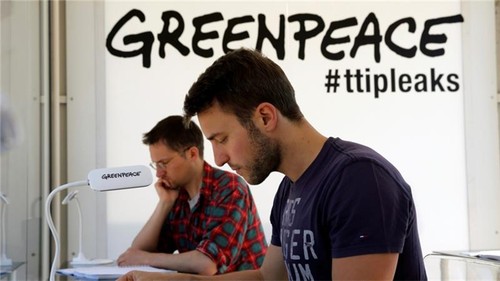(VOVworld) – The US and EU have criticized wrong views after the leaking of documents reported to be of the Trans-Atlantic Trade and Investment Partnership (TTIP) agreement. They say the agreement will not lower standards on the environment and consumers’ health.
 |
Both the EU and US want the TTIP negotiation to complete this year before President Barack Obama leaves office (photo: Reuters)
|
A spokesperson for the Office of the US Trade Representative (USTR) sent an email to the media on May 2 saying that statements based on the leaked documents are totally wrong. The TTIP will protect, not lower or circumvent, standards for the environment and public health. The US and EU will cooperate to promote these standards at the global level. The European Commission made a similar announcement saying it’s a mistake to think the leaked pages are part of the TTIP.
The US and EU were responding to the revelation by the Greenpeace Netherlands organization of 248 confidential pages said to be from the TTIP, putting corporations’ interests above environmental and public health standards.
At the 13th TTIP negotiation on April 29, the US and EU made certain concessions needed to finalize the negotiation by the end of this year, before President Obama leaves office. But on May 3 French Minister of State for Foreign Trade Matthias Fekl warned that TTIP negotiations might be halted because of Washington’s reluctance to make further concessions.
TTIP negotiations began in July, 2013, but have been delayed because of EU opposition to US insistent that private investors be allowed to sue governments for activities that impact their business. EU leaders are concerned that American multinational corporations will use the Investor-state dispute settlement (ISDS) instrument to challenge laws on foodstuff, employment, and the environment.
The TTIP is expected to be the world’s biggest trade deal, forming a market of 850 million consumers and accounting for half of the global trade revenue. It would raise EU-US trade value to 1 trillion USD and generate 13 million jobs.